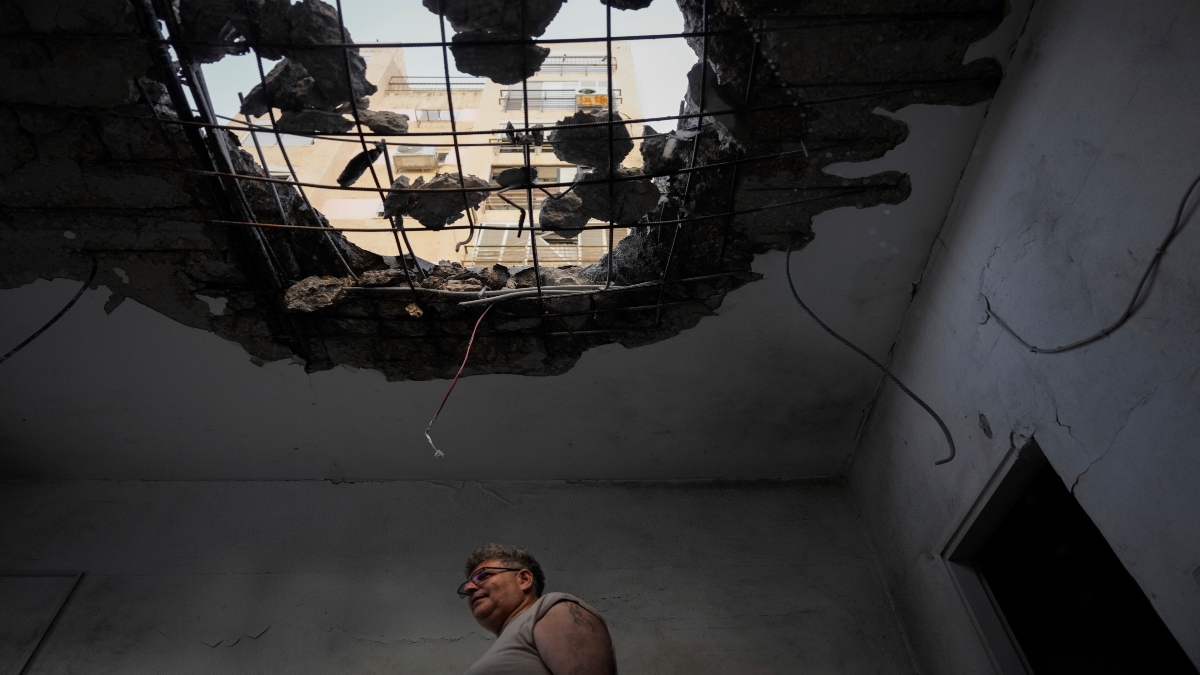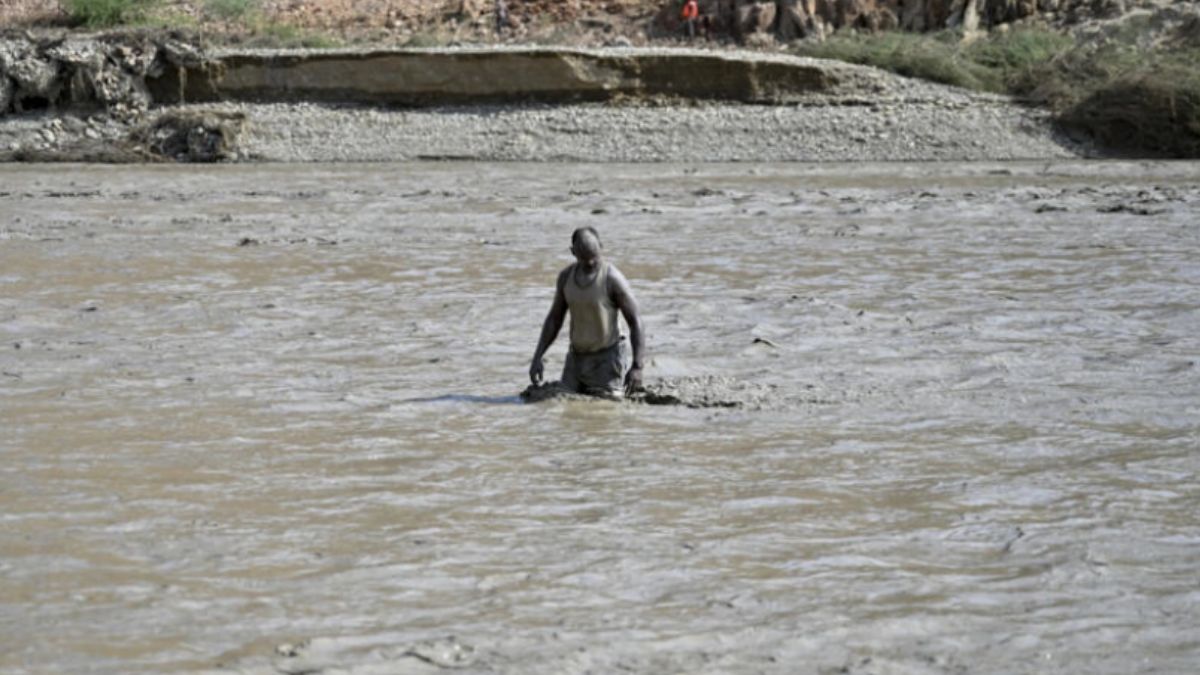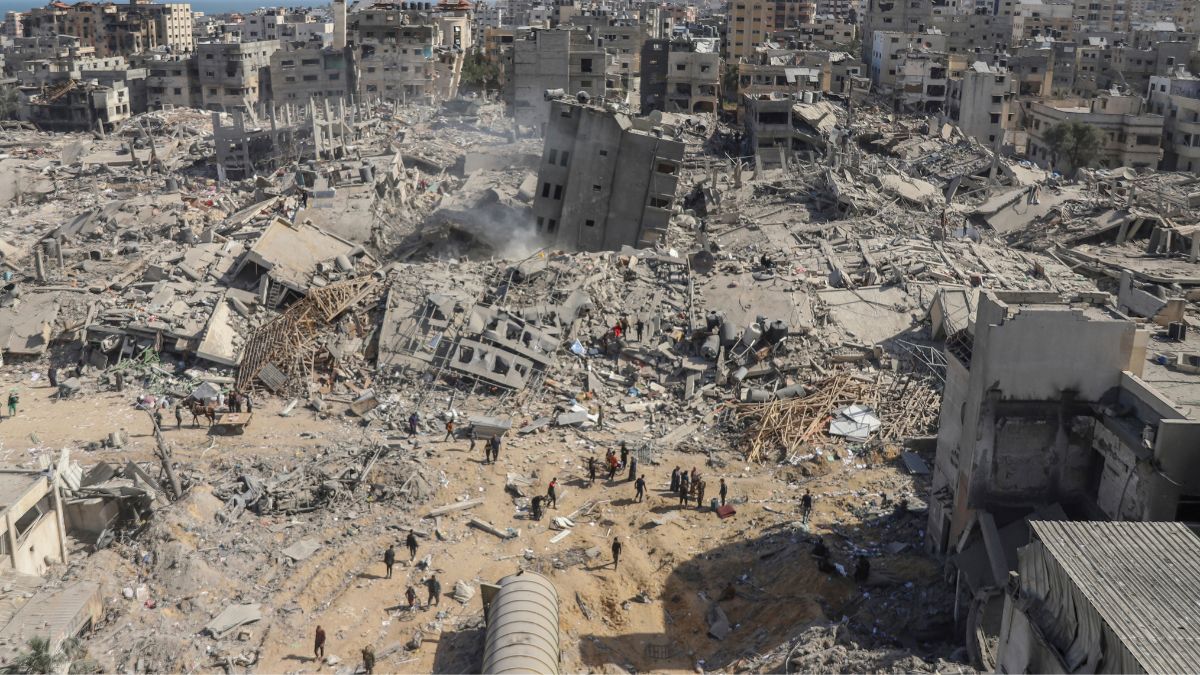As many as 105 rockets were fired at the northern Israeli city of Haifa and the Galilee area in one hour, even as Israel said that it was expanding ground offensive in Lebanon by deploying a fourth division to its northern border read more
)
A man examine his damaged apartment that was hit by a rocket fired from Lebanon in Kiryat Yam, northern Israel, on Tuesday. AP
As many as 105 rockets were fired at the northern Israeli city of Haifa and the Galilee area in one hour, even as Israel said that it was expanding ground offensive in Lebanon by deploying a fourth division to its northern border.
According to a CNN report, citing the IDF, the rockets were fired from Lebanon in two separate barrages.
While numerous rockets were intercepted or fell in open areas, at least two buildings in Kiryat Yam and Kiryat Motzkin were directly hit, reported CNN.
Israeli emergency services reported that a 71-year-old woman was hospitalised with a shrapnel injury to her hand, while others received treatment for injuries sustained as they sought safety.
Before the barrages in Haifa, the IDF said that 25 rockets were launched from Lebanon toward the Lower Galilee region, according to CNN.
As the IDF announced that it was carrying out strikes against Hezbollah targets in Beirut’s southern suburbs, Hezbollah announced that it had “launched a large rocket barrage at the cities of Haifa and Kiryat.”
According to The Times of Israel report, the large-scale attack coincided with statements from Hezbollah deputy leader Naim Qassem, one of the last remaining figures in the group’s top leadership, saying that Hezbollah’s military capabilities were intact, that it had increased its rocket fire on Israel, and that it was itching for “clashes” with Israeli troops in Lebanon.
“We are firing hundreds of rockets and dozens of drones. A large number of settlements and cities are under the fire of the resistance,” Times of Israel quoted Qassem as saying in a video address, speaking from an undisclosed location.
“Our capabilities are fine and our fighters are deployed along the frontlines,” Qassem added.
He said Hezbollah’s top leadership was directing the war and that the commanders killed by Israel had been replaced.
“We have no vacant posts,” he said.
He said that Hezbollah will appoint a new leader to succeed Hassan Nasrallah, who was killed in an Israeli airstrike in a Beirut bunker last month, but noted that “the circumstances are difficult because of the war.”
Qassem claimed that Israeli forces have not made any progress following their ground incursion into Lebanon last week.
The Israeli military on Tuesday said that a fourth division is now involved in “Operation Northern Arrow”, which started with an intense aerial campaign on September 23 and expanded on Monday to include ground offensives across the border, which has expanded westward.
However, operations appear to remain limited to a narrow strip along the border, with the army indicating it aims to secure that area to allow evacuated residents from northern Israel to return home safely.
Qassem contended that instead of residents returning, even more Israelis will be displaced due to the ongoing fighting.
Meanwhile, Hezbollah said it had forced Israeli troops to retreat Tuesday after they crossed into Lebanon near a UN peacekeeping post.
Hezbollah fighters fired at “an Israeli enemy force that infiltrated from behind the international forces’ position in Labboune,” a border village, AFP quoted the Iran-backed group as saying, adding they “forced the infiltrating enemy force to withdraw behind the border strip”.
With inputs from agencies

 1 month ago
9
1 month ago
9
)
)
)
)
)
)
)
)
)
)
)
)
)
)
)
)
)
)
)
)
)
)
)
)
)
 English (US) ·
English (US) ·